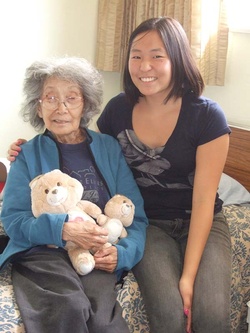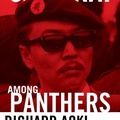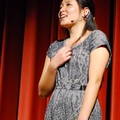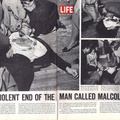This is a paper that I wrote for my Intro to Asian American Studies class at UC Berkeley in Fall of 2010. When given the topic: Placing a Biography in the Context of History, I decided to write a biography about my grandma. I have edited this paper slightly to bring it up to date and fit more into the context of Discover Nikkei.
* * * * *
Yuri Kochiyama, my grandmother, is a 2nd generation Japanese American woman at the ripe age of 90. Not only is she my grandma, but she is also a political and civil rights activist, role model, fighter for human rights and social justice, and humanitarian.
Born at the beginning of the Great Depression, my grandma has lived through decades of change. Her story relates to the themes of this class in the issues that she has fought for and the reasons why these issues were so important in the context of the policies of the government, the assumptions and stereotypes of Asian Americans in America, and how Asian Americans dealt with these struggles.
Among these struggles was Japanese American Internment during World War II and Japanese American Redress and Reparations that followed about 40 years later, the International Political Prisoner Rights Movement, and the Civil Rights movement, in which my grandma worked with organizations such as Asian Americans for Action, the Black Panther Party, and the Puerto Rican Young Lords Party. Her life story reflects how an ordinary person can spark change not only bigger than one person, one family, one race, but one nation.
As we have seen throughout Asian American history as Korematsu refused to obey Executive Order 9066 and took this injustice to court, as Bhagat Singh Thind went against the U.S. Supreme Court to fight for his citizenship, and as Chinese immigrants during the late 1800s have gone to court to fight for compensation for vandalism and property damage from White American attacks, ordinary people can make tumultuous differences. However, Yuri emphasizes the importance of interethnic alliances and cross-cultural ties in the struggle for social justice and movement toward a better world.
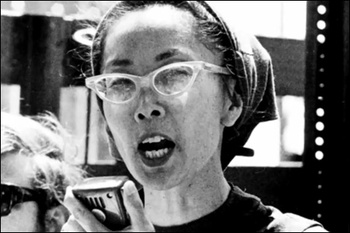
Yuri Kochiyama was born Mary Yuriko Nakahara on May 21, 1921 to Tsuya and Seiichi Nakahara in a small seaport village, San Pedro, California. She had a twin brother, Pete, and an older brother, Art.
Looking back on her childhood, Yuri told me, “San Pedro was a really nice place to grow up because there were so many different nationalities.” As a teenager, Yuri was an “all-American” girl. She taught Sunday school at her local church, volunteered her time to Girl Scouts and teaching children arts and crafts, photography, first aid, and tennis, and was her high school’s sports journalist.
She said that when growing up, she thought that San Pedro was “ideal,” but looking back on it, “I think there was racism, but no one’s gonna tell that we’re sorry, but it’s better you Japanese stayed among yourselves.” It was more apparent in the way that it was just the norm that Japanese would only go on dates with only Japanese and whites with only whites and she said that, “we knew from the time we were little, we were taught that no Japanese was born in the hospital and we knew that no Japanese was allowed in the hospital.”
Also, when she tried to enter the working world, she found that her choices were very limited. There were four Five and Dimes stores and at the time, in which many of her friends held jobs there. But when Yuri tried to apply, three out of the four stores wouldn’t even let her fill out an application because she was Asian. Finally, at the last store, Woolworth, she saw that a Mexican American girl was working there. She told her that she was the first Mexican American they had hired, so she encouraged Yuri to apply. Yuri got the job, but could not get a regular schedule, only working on Saturdays and holidays.
In her memoir, when recalling her childhood, Yuri said, “I was sheltered, lived comfortably and safely, religious, provincial, and apolitical in thought” (Kochiyama 2004, 9).
© 2011 Maya Kochiyama


